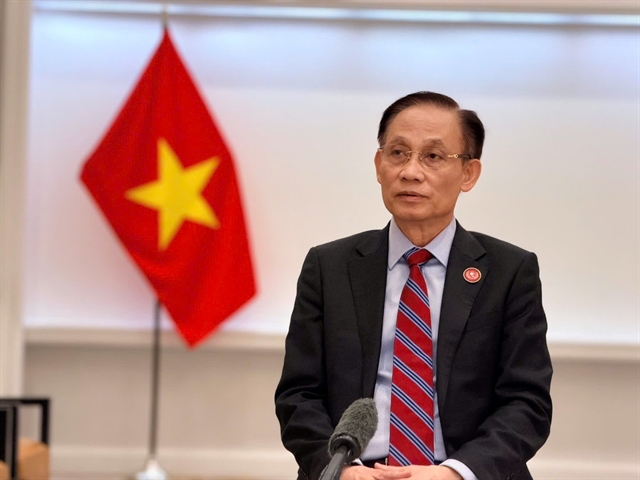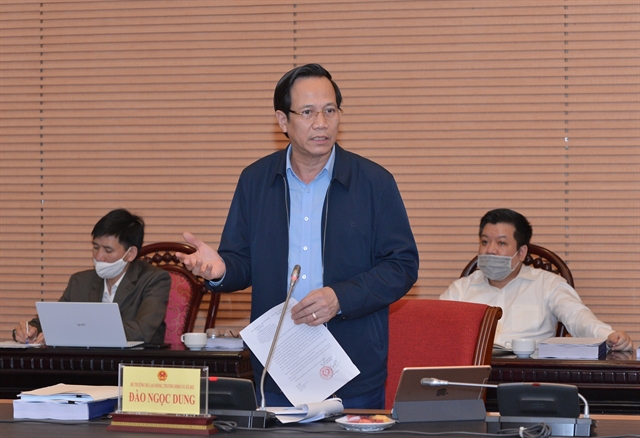 Politics & Law
Politics & Law


|
| Minister of Labour, Invalid and Social Affairs Đào Ngọc Dung at the session on Thursday afternoon in Hà Nội. —VNA/VNS Photo Phương Hoa |
HÀ NỘI — A new draft law would make it easier for authorities to financially support Vietnamese workers abroad in times of crisis, but National Assembly deputies are divided over whether to approve it.
The draft aims to alter the approved uses for the Fund for Overseas Employment Support.
The scope of spending from the fund would be broadened, said Deputy Minister of Labour, Invalid and Social Affairs Lê Văn Thanh on Thursday at the afternoon session of the National Assembly’s Committee for Social Affairs.
The session, chaired by chief of the committee Nguyễn Thuý Anh, was held to assess proposals for adjusting the Law on Vietnamese workers working abroad under contract.
Under the current law, the fund can be spent to expand and develop labour markets, improve the quality of labour resources and for support to deal with risks for businesses and workers.
Some observers have said the fund has not operated as effectively as should be expected.
Thanh said the draft law would mean the fund is spent on preventing risks for labourers while working abroad and educating those working abroad on laws relevant to them.
Bùi Sỹ Lợi, vice chairman of the committee said some deputies supported the changes, but others wanted the committee to consider any such change carefully as the fund had been operated ineffectively.
The committee assessed that the draft law failed to specifically explain the new uses of the fund.
The committee asked the ministry to send an additional report to clarify four issues, namely the fund’s effectiveness, the fund’s expenditure, the fund’s transparency and the structure of the fund’s personnel and managerial department.
In response, Minister Đào Ngọc Dung said the broadening of the fund’s scope was very necessary.
Dung gave an example that when businesses or labourers suffered from fire accidents abroad, the ministry wanted to send them financial support but was unable to due to a lack of regulations.
Also at the session, Thanh said the current law had revealed shortcomings after 12 years of implementation and they needed to be fixed.
The shortcomings include conditions for granting service operation licences to send labourers to work abroad being unsuitable in practice and some provisions of the law not being synchronised with other new laws, such as the 2019 Labor Code, he said.
Thanh said the draft law aimed to improve the legal framework, create a smooth and uniform legal environment for sending Vietnamese labourers abroad under contracts as well as perfect regulations on services to send labourers to work abroad under contracts.
It was also expected to effectively protect the rights and interests of Vietnamese citizens working abroad, he said. —VNS




